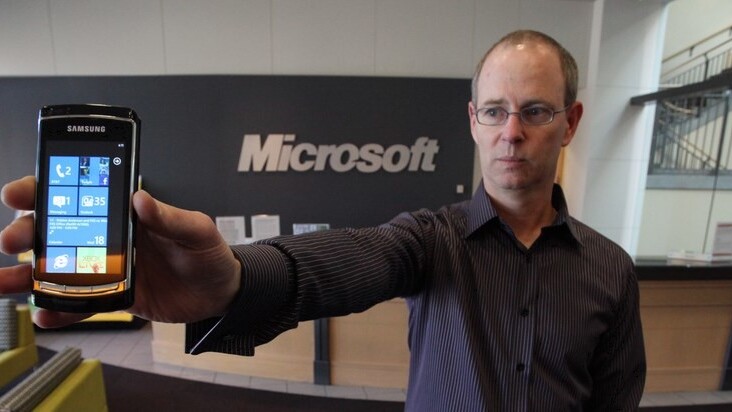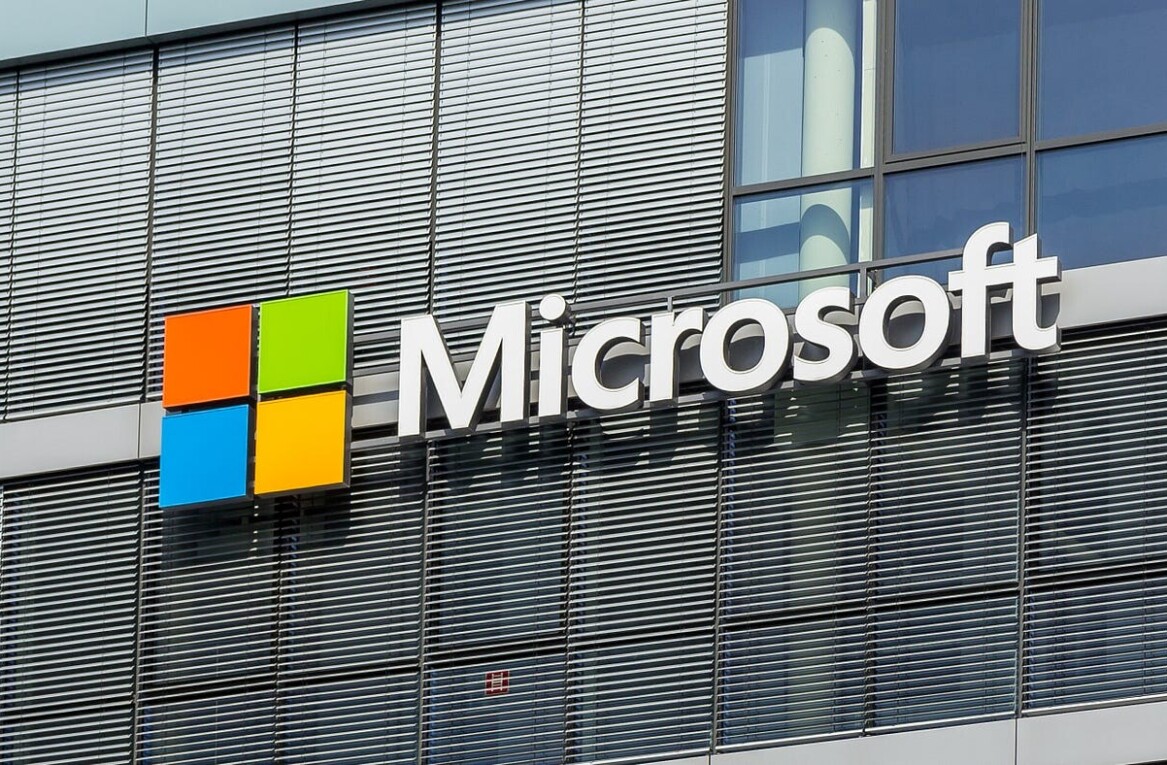
Friday has befallen us yet again, friends, which means we must take a look backwards at the last seven days’ Microsoft news before we slink off into the weekend.
This week we’re focusing on market share figures for a few Microsoft products, and decisions that impact the company’s relationship with Apple and Facebook. Double check that you are following TNW’s Microsoft channel on both Facebook and Twitter, and let’s get into the news.
Microsoft and Facebook Home
Microsoft took a different tack with Windows Phone, eschewing rows upon rows of apps; it was a purposeful move away from the Android and iOS platforms’ design aesthetic. Yesterday, Facebook introduced ‘Home,’ a launcher for the Android operating system that follows the Windows Phone ethos, in that it focused on people, and not apps.
This has irked Microsoft. You can almost hear the complaints: “Where was this fawning coverage when we broke the same ground two years ago?”
Perennial bulldog for Microsoft, Frank Shaw, took to his pen to express his irksome status. TNW’s Nick Summers did a great job this morning breaking down and contextualizing Frank’s complaints, which I recommend that you read. Here, however, I but excerpt [Bolding, formatting: TNW]:
I tuned into the coverage of the Facebook Home event yesterday and actually had to check my calendar a few times. Not to see if it was still April Fools Day, but to see if it was somehow still 2011. Because the content of the presentation was remarkably similar to the launch event we did for Windows Phone two years ago. […]
[W]e understand why Facebook would want to find a way to bring similar functionality to a platform that is sadly lacking it. But as Android owners know, that platform is complicated enough without adding another skin built around another metaphor, on top of what is already a custom variant of the OS.
So, while we applaud Facebook for working to give some Android owners a taste of what a “people-centric” phone can be like, we’d humbly like to suggest that you get the real thing, and simply upgrade to a Windows Phone.
Oh my. Well, not really; Microsoft has invested a massive sum of its corporate treasure – financial and otherwise – into Windows Phone. To see elements of its vision lifted by a company that it is a partial owner of must sting more than a bit.
Still, Home isn’t Windows Phone; they are distant cousins who have the same politics. That said, any opportunity to watch Frank saddle up his Gore Vidalian high horse is worthy of our time.
SkyDrive 3.0 and the Apple dance
The kerfuffle between Apple and Microsoft over payments cuts to subscription revenues regarding the SkyDrive products’ iOS application has reached a point of general detente, or at least less obloquy.
Microsoft: “We worked with Apple to create a solution that benefited our mutual customers. The SkyDrive app for iOS is slightly different than other SkyDrive apps in that people interested in buying additional storage will do so via the web versus in the app.”
Now, that sounds reasonable, doesn’t it? To avoid paying Apple a piece of Microsoft revenue from its customers, it is dropping the ability for its users to purchase storage on the iOS platform. Not ideal, but a functional compromise.
Why is all so odd, then? As I wrote before, this was the old situation:
Microsoft has persisted in trying to work out a compromise with Apple, but has thus far failed to come to an agreement. The company offered to remove all subscription options from its application, leaving it a non-revenue generating experience on iOS. The offer was rebuffed.
We haven’t managed to find anyone willing to break party line and explain what changed. All we can do is speculate. Still, for users, welcome to SkyDrive 3.0.
Internet Explorer market share
It was a big month for Internet Explorer 10: It picked up 1.35 percent market share, landing at the 2.93 percent mark. Impressive, frankly. Why? It picked up Windows 7 support. Internet Explorer as a whole picked up 0.01 percent market share, ending the month of March at 55.83 percent.
Microsoft’s old warhorse of a browser grew its Internet Explorer 10 market share at the expense of Internet Explorer 9, which could slip below 20 percent market share soon enough. Note; Now that Internet Explorer 10 works on Windows 7 we cannot use it as a proxy to track the success of Windows 8.
Windows market share
In the last month, Windows 8 picked up 0.52 percentage points, ending up at 3.31 percent. Windows Vista slipped under the 5 percent mark, landing at 4.99 percent. Destined to be a footnote in the Windows universe, Vista is shrinking into nothingness.
How is Windows doing overall? TNW’s Emil Protalinksi has the news:
Between February and March, Windows grabbed 0.27 percentage points (from 91.62 percent to 91.89 percent). This was OS X’s and Linux’s loss, which fell 0.23 percentage points (to 6.94 percent) and 0.04 percentage points (to 1.17 percent), respectively.
Now, that’s enough of all that. Knock off, have a lager, and pretend to work until your boss leaves early.
Top Image Credit: Robert Scoble
Get the TNW newsletter
Get the most important tech news in your inbox each week.




